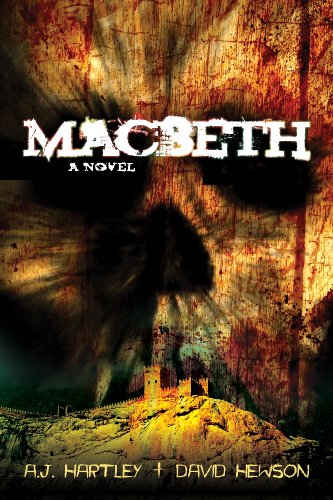Macbeth: A Novel
Few readers will come to this novel without at least a sketchy memory of the Shakespeare play, whether it was read or seen in high school, college, or during graduate study (and, for some of us, all three): Macbeth, the great warrior, spurred on by his wife, connives to murder King Duncan in order to take the Scottish throne for himself, only to be wracked by guilt and an ever-widening web of lies and deceit, which destroys his vision of a unified country. Hartley and Hewson have maintained the original characters, setting and time of the tragedy. Eleventh century? Check. Banquo in physical and spirit form? Check. Unstable wife? Check. Witches? Oh, yes.
What the authors bring to this novelization is both context and subtext, ranging from Lady Macbeth’s first name (Skena), to a range of Scottish scenery, from the foreboding fortress at Inverness to the Hill of Credulity at Scone Palace, where kings are crowned. They also let the reader in on the history and lives of the witches, whose presence is felt on nearly every page. The added familiarity with characters both major and minor creates a deeper story that pulls the reader along even though the ending is always evident. Glimpsing the private lives of the Macbeths, in good times and as events spiral out of control, provides believable background for the tragic clash between ambition, conscience, free will and the supernatural.
Macbeth could use a good editing, as the language is at times grating and repetitive; the few lines from Shakespeare are not well-incorporated. The surfeit of sex (who knew!) may increase sales, but quickly becomes a detraction from the otherwise attention-keeping narrative.










